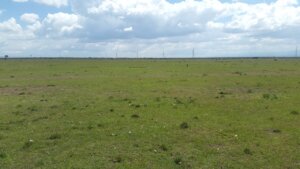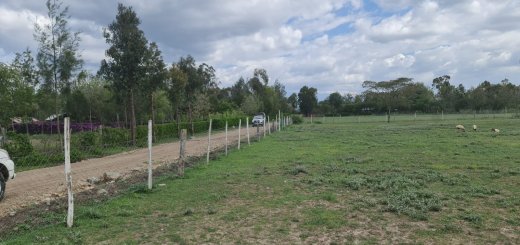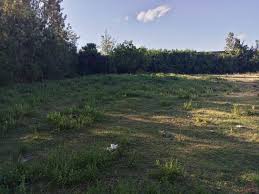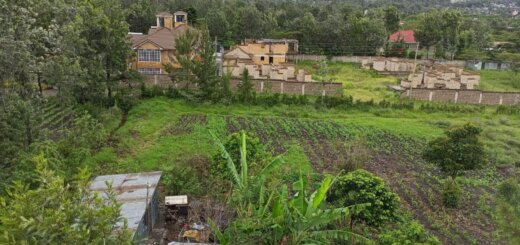Land Investment in Kenya: 8 Factors to Consider and Opportunities for Growth

Land Investment in Kenya
Why is it Important to Invest in Land in Kenya?
Why is it Important to Invest in Land?
Land is a finite resource, and as population growth and urbanization continue to increase, the value of land is likely to rise. Investing in land can provide a number of benefits, including long-term appreciation, rental income, and the potential for development.
- Long-term Appreciation
One of the primary reasons to invest in land is for long-term appreciation. Land is a tangible asset that can appreciate in value over time, especially as the population and demand for housing and commercial properties increases. This appreciation can be significant, with some land appreciating in value by as much as 500% over a decade or more.
- Rental Income
Another benefit of investing in land is rental income. If the land is leased to a farmer or used for grazing or other purposes, it can generate income for the owner. Additionally, if the land is developed into commercial or residential properties, it can provide rental income from those properties.
- Development Potential
Investing in land also offers the potential for development. If the land is in an area that is expected to experience population growth or urbanization, it may be developed into commercial or residential properties. This can provide a significant return on investment, as the value of the land and the properties built on it can increase significantly.
- Tax Benefits
Investing in land can also provide tax benefits. The IRS allows for depreciation of rental properties, and the land under the property is included in the depreciation calculation. This can provide a significant tax benefit for the investor. Additionally, if the land is sold for a profit, the capital gains tax rate is generally lower than the rate for other investments such as stocks or bonds.
- Diversification
Investing in land can also provide diversification for an investment portfolio. Land can be a hedge against inflation, as the value of the land may increase with inflation. Additionally, investing in land can provide a hedge against stock market volatility, as land values are not as closely tied to stock market performance.
- Easy To Understand
Unlike the stock market and other forms of investing, land is easy to understand. It’s a tangible asset that can be seen, touched and inspected. This makes it easier for investors to evaluate the value and potential of a piece of land.
- No Maintenance Required
Unlike other forms of real estate investments, such as rental properties, land requires little to no maintenance. This can save investors time and money, and can also make land a more attractive investment.
- Flexibility
Investing in land can be very flexible, as investors can choose to hold onto the land for the long-term appreciation, develop it for rental income or development potential, or even use it for personal use.
- Control
Investing in land gives you the ability to control your own piece of property, and make decisions about how to use it. As the owner, you have the freedom to use it for any purpose, whether it be for personal use, rental income or development.
- Legacy
Investing in land can be a great way to create a legacy for future generations. Land can be passed down through families, and can serve as a source of income or a place to call home for generations to come.
In conclusion, investing in land can provide a number of benefits, including long-term appreciation, rental income, development potential, tax benefits, diversification, easy to understand, no maintenance required, flexibility, control and legacy. As population growth and urbanization continue to increase, the value of land is likely to rise, making it an attractive investment option.

What are Some of the Things one can do With Their Acquired Piece of Land in Kenya?
There are many things that you can do with your acquired piece of land, depending on its size and location. Here are just a few possibilities:
1. Build a house or other structure: If your land is large enough, you could build a house or other structure on it. This could be your primary residence, a vacation home, or a rental property.
2. Grow crops or raise livestock: If your land is suitable for agriculture, you could use it to grow crops or raise livestock. This could be a hobby or a source of income, depending on your level of dedication and the size of your land.
3. Create a nature reserve: If your land is home to a diverse array of flora and fauna, you could create a nature reserve on it. This could involve protecting and conserving the natural habitat, and potentially offering educational programs or guided tours
4. Develop a recreational area: If your land is in a desirable location, you could develop it into a recreational area. This could include building amenities such as hiking trails, picnic areas, and sports facilities, and potentially charging a fee for access.
5. Use it for storage: If your land is located in a convenient location, you could use it for storage. This could involve renting out space to individuals or businesses that need a place to store their belongings or equipment.
Overall, the possibilities for what you can do with your land are endless. The key is to carefully consider the unique characteristics of your land, and how it could be used in a way that is beneficial to you and the community.
.
In conclusion, the land is one of the most valuable assets that you can invest in. It is a tangible, physical asset that is not subject to the same fluctuations and risks as other investments. Additionally, land has the potential to appreciate in value over time, and can provide a stable source of income through rentals or other uses. Furthermore, owning land gives you the freedom and flexibility to use it in a way that is personally and financially rewarding. For these reasons, land is a smart and secure investment that is worth considering.

Land for sale in Kenya
Factors to Consider when Investing in Land in Kenya
There are several factors to consider when investing in land in Kenya. Some of the most important include:
- Location: The location of the land is crucial in determining its potential value. Land in urban areas or areas with good infrastructure and access to services and amenities will typically be more valuable than land in rural areas.
- Zoning: It’s important to research the zoning laws and regulations in the area where the land is located. Land that is zoned for commercial or residential development will have more potential for appreciation than land that is zoned for agriculture or conservation.
- Title Deeds: It’s important to ensure that the land you are buying has clear and valid title deeds. This will ensure that you have the legal right to use and develop the land.
- Soil Quality: The quality of the soil will affect the potential use of the land. For example, land with fertile soil will be more suitable for agriculture, while land with poor soil quality may not be suitable for any use.
- Access to Utilities: Land that has access to electricity, water, and other utilities will be more valuable and more attractive to potential buyers or renters.
- Environmental Factors: Factors such as climate, topography, and the presence of natural resources can affect the potential use and value of the land.
- Market conditions: It’s important to consider the current market conditions and trends when investing in land. The demand for land in a certain area can change over time, and it’s important to have a good understanding of the market before making an investment.
- Community and political stability: Investing in land in a stable and peaceful community and political environment is more likely to yield positive returns compared to an area where there is constant political turmoil and community conflicts.
Overall, land investment in Kenya can be a great opportunity, but it’s important to conduct thorough research and due diligence before making a purchase. It’s advisable to consult with experts such as real estate agents and lawyers to ensure that you make an informed decision.



